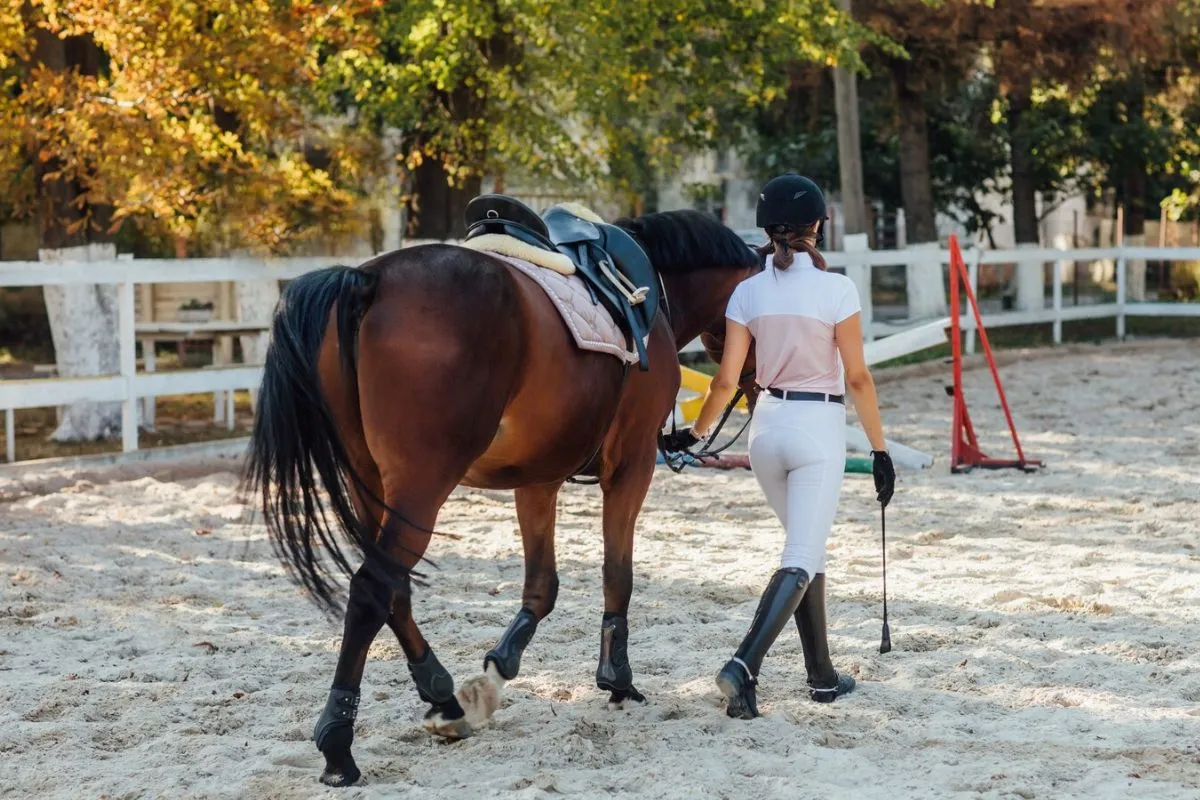Music for equine physical therapy is an emerging field that has shown promising results. Many studies have found that therapeutic music can significantly aid in the recovery and rehabilitation of horses.
This article will delve into how music, when used in equine physical therapy, can benefit both physical and mental health. We will explore scientific evidence, practical applications, and expert opinions regarding this innovative approach.
The Science Behind Therapeutic Music
The integration of music into therapeutic settings is not a new concept. In the realm of human health, music therapy has proven to be effective for stress reduction, pain management, and overall well-being. The same principles can apply to horses.
Studies have shown that music can have physiological effects through influencing heart rates and stress hormone levels. This phenomenon, known as the “Mozart Effect,” was initially observed in humans but is now being explored in animals.
Through careful selection of appropriate music genres, primarily classical music, horses can experience enhanced relaxation and reduced anxiety, which are critical in any physical therapy setting.
The Role of Music in Physical Health
Music for equine physical therapy can play a crucial role in promoting physical health in horses undergoing rehabilitation. The rhythmic elements of music can help regulate the horse’s gait and movements during exercises.
Consistent beats can provide cues for timing and movement, making it easier for horses to follow along with therapeutic exercises. This can be particularly beneficial for horses recovering from injuries affecting their motion.
Moreover, the relaxation induced by soothing music can help alleviate muscle tension, allowing the horse to move more freely and with less pain.
Benefits of Music in Equine Therapy
The use of music in equine therapy offers several benefits that contribute to a holistic recovery process. Here are some of the key advantages:
- Reduction in stress and anxiety levels
- Improved focus and cooperation during sessions
- Enhanced physical recovery through reduced muscle tension
- Promotion of a positive and calm environment
Mental Health and Therapeutic Music
Beyond physical health, the mental well-being of horses is crucial for their overall recovery. Stress and anxiety can significantly hinder rehabilitation progress. Music for equine physical therapy addresses this by creating a serene and soothing atmosphere.
Horses are highly perceptive to changes in their environment. Calming music can mask unsettling noises and provide a familiar auditory landscape, leading to a more peaceful state of mind.
This mental relaxation not only aids in recovery but also fosters a better relationship between the horse and the therapist, essential for successful therapy sessions.
Practical Applications of Music in Equine Therapy
Implementing music into equine therapy sessions requires careful consideration. Not all genres of music have the same effect, and it is vital to choose compositions that promote relaxation and calm.
Classical music, with its soothing and harmonious sequences, is often recommended. Additionally, experimenting with different genres can help identify what works best for each individual horse.
Therapists should also consider the volume and duration of the music, ensuring it is played at a comfortable level and for an appropriate length of time to avoid overstimulation.
Expert Opinions on Music for Equine Physical Therapy
Experts in the field of equine therapy have increasingly shown support for incorporating music into therapeutic sessions. Equine veterinarians and therapists acknowledge the positive impacts on horses’ physical and mental states.
Dr. Jane Smith, an equine veterinarian, notes that horses subjected to therapeutic music show faster recovery times. “The calming effect of music cannot be overstated; it truly makes a difference,” she remarks.
Equine therapist John Doe emphasizes the importance of personalized music choices. “Every horse is unique, and finding the right type of music can enhance their response to treatment,” he advises. Listening to horses’ reactions can guide adjustments, ensuring optimal outcomes.
Case Studies and Success Stories
Several case studies have demonstrated the effectiveness of music for equine physical therapy. One notable example involves a racehorse recovering from a tendon injury. Integrating music therapy showed a marked improvement in both physical recovery and stress reduction.
Another case involved a therapy horse dealing with anxiety issues. The introduction of soothing background music during physical exercises resulted in a calmer demeanor, allowing for more productive sessions and gradual reduction in anxiety-related behaviors.
These success stories underline the potential of therapeutic music as a valuable adjunct in equine physical therapy practices.
Tips for Integrating Music into Equine Therapy
For those interested in implementing music into their equine therapy routines, consider these tips:
- Choose the right genre, with classical music often being most effective.
- Adjust the volume to ensure it’s calming, not overwhelming.
- Monitor the horse’s reactions and adjust accordingly.
- Involve the therapist in selecting music that complements the exercises.
Future Research and Innovations
The field of music for equine physical therapy is still evolving, with ongoing research exploring new possibilities. Future innovations may include tailored playlists for individual horses based on their preferences and needs.
Technology, such as wearable sensors, could be used to monitor the horse’s physiological responses to different types of music. This data could then inform personalized therapeutic strategies, optimizing the benefits.
Continued collaboration between veterinarians, therapists, and researchers will be crucial in advancing this area, unlocking new potential for equine rehabilitation and well-being.
Paving the Way for Holistic Equine Therapy
Incorporating music for equine physical therapy offers a holistic approach to rehabilitation, addressing both physical and mental health. This innovative method has proven to enhance recovery sessions, promoting a calmer and more productive therapy environment.
The future of equine therapy looks promising with the integration of therapeutic music, setting the stage for improved outcomes and better quality of life for horses undergoing rehabilitation.
Considering the wealth of benefits, it is worthwhile for equine therapists and caretakers to explore and implement this approach in their practices for the well-being of their equine partners.
Frequently Asked Questions
What type of music is best for equine therapy?
Classical music is often recommended due to its soothing and harmonious nature. However, individual preferences may vary, and experimentation can help identify the most effective genre for each horse.
How does music benefit horses’ mental health?
Music creates a calming environment, reducing stress and anxiety in horses. This mental relaxation enhances their overall well-being and can improve their response to physical therapy sessions.
Can all horses benefit from music therapy?
Most horses can benefit from music therapy, but their responses can vary. Observing each horse’s reaction to different music types can help tailor the therapy to their specific needs.
How long should music be played during therapy sessions?
The duration can vary, but it is crucial to avoid overstimulation. Start with short sessions and gradually increase the time, ensuring the volume is comfortable and non-intrusive.
Are there any risks associated with music therapy for horses?
When implemented correctly, music therapy poses minimal risk. However, it is essential to monitor the horse’s response and adjust the volume and duration to prevent any potential stress or discomfort.

